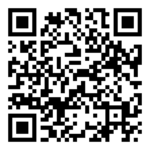At the December 10, 2020 membership meeting, members approved this resolution on equity and anti-discrimination in union work, committing to continuing to advance principles of equity and social justice in our internal union work and spaces. Among other things, this includes committing to building a culture of harm prevention, as well as clear and accessible structures of support for any member who experiences discrimination or harassment while engaging in union work.
As members of UAW 4121, we are committed to building a union founded on principles of equity and social justice. Over the years, UAW 4121 members have worked to advance these principles in our organizing for structural change at the University of Washington and our broader communities. As a part of this ongoing work, we recognize that it is also critical to continue advancing these principles internally in our union work and spaces. In that interest, we agree to the following:
We do not tolerate any form of harassment, discrimination, or retaliation in our organizing work and union spaces. This includes (but may not be limited to) harassment and/or discrimination based on sex, gender, gender identity, gender expression, race, national or ethnic origin, citizenship, religion, age, marital status, sexual orientation, genetics/genetic markers or information, disability status, veteran status, union activity, pregnancy status, parental or caregiver status, ancestry, political ideology, use of a service animal, or physical traits such as skin color, weight, etc.
We are committed to building a culture of prevention in our union. We recognize that issues of inequity and discrimination are not simply problems with bad individual behavior or belief. Rather, inequity is a structural issue, and organizational culture is the strongest predictor of whether harassment will occur. Thus, we are committed to building norms and structures that prevent harm from occurring in our organizing work in the first place.
We are committed to building clear and accessible structures of support for members who experience harassment, discrimination, or retaliation while engaging in union work. We also recognize that because we are situated within broader systems of oppression, complete prevention is not achievable in the short term, and harm will inevitably occur. We are committed to building clear and accessible structures of support that enable members to get help on issues they experience, and that encourage addressing issues early to help prevent harm from escalating. This work should balance transparency about how issues are resolved and tracked, while also supporting the privacy of those who don’t wish to make public reports.
We are committed to building practices of accountability in our organizing work and union spaces. These practices should be based in best practices of trauma-informed and survivor-centered work, and should be aimed at repairing harm when it occurs. Further, we are committed to developing practices and norms that create the conditions necessary for accountability to be “possible, expected, and likely” (Connie Burk, 2011).
Shareable Handout
Members are encouraged to share a copy of these commitments at the beginning of every union meeting, on slides/handouts, etc. You can easily share using this link: https://tinyurl.com/equity-4121 or this QR code (click to enlarge/download):
Get Support
Contact information for at least one support person will be made clearly accessible at all union events, including membership meetings, phone/textbanks, working group and committee meetings, etc. Any member who experiences discrimination, harassment, or other concerns in union spaces should contact uaw4121@uaw4121.org right away for support.
Get Involved
Members interested in getting involved furthering this work — including by developing facilitation guides, trainings, support structures, and more, email anti-discrimination@uaw4121.org to get connected with our next meeting!

